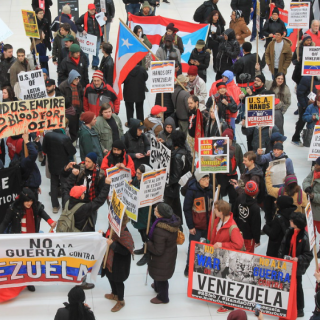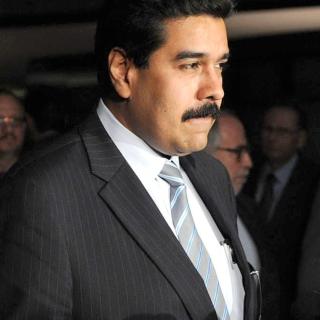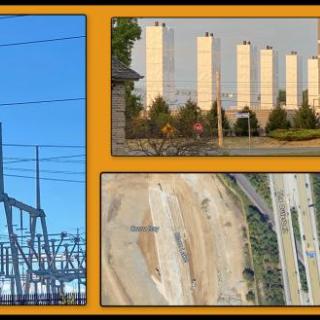Advertisement
As the effects of coronavirus still ravage the globe, many people have noted that this is the fourth major crisis of the 21st century. Some even say that coronavirus is a composition of all our most recent crises combined. After all, the 2000s began with a good deal of tragedy -- 9/11 occurred only a year in and was followed by Hurricane Katrina shortly after. Both showcased a lack of preparedness by the U.S. government for such major emergencies, whether they were created by nature or man-made. Things would eventually turn for the worse economically right as the country started to recover, as the financial crisis of 2008 -- created by the pure greed and deregulation on Wall Street -- wreaked havoc across the country, more so than any natural or manufactured tragedy had up until that point.
9/11 seemingly came out of nowhere and saw over 3,000 Americans slaughtered on live television in one day. That feeling of our country being attacked by an “invisible enemy” (since it happened before terrorism became a more mainstream topic) left people hopeless because our government had been so “unprepared.” As The Atlantic recently pointed out, “Americans were still living mentally in the previous century, and the memory of depression, world war, and cold war remained strong… Our civic reflex was to mourn and mobilize together.” However, this unity quickly dissipated due to awful domestic and foreign policies alike, leading to an era of hyper partisanship that we still live with today. People later found out that warnings of the September 11th attacks were carelessly overlooked by the Bush administration, including reports in August 2001 that Osama bin Laden was determined to attack the U.S. Now those same feelings are returning as we’re attacked by yet another “invisible enemy” and our Republican leadership in Washington should've done far more to prevent a needless tragedy and once again failed to do so.
The lack of competence by the Bush administration was showcased again when Hurricane Katrina devastated the Gulf Coast in 2005. However, instead of the federal government’s actions proving to be slow and inefficient in response to a terrorist attack, Hurricane Katrina highlighted structural failures amongst all our levels of government when a large natural disaster overwhelms an entire system. As The New Yorker recently wrote, “When the hurricane struck the Gulf… It did not turn the region into a Third World country, as it has been disparagingly implied in the media; it revealed one.” Now we’re seeing those same structural problems again as coronavirus ravages poorer communities and reveals an inadequate healthcare system incapable of handling a widespread pandemic. The clean up that followed Hurricane Katrina was lengthy, but this next clean up will have to be much bigger if we want to truly correct society’s ills after COVID-19 is finally contained. The disparity on display today is far worse.
While coronavirus has certainly brought death and destruction to America, the economic effects are also catastrophic and similar to another crisis that hit at the end of the Bush presidency. When the housing bubble burst in 2008, it sent Wall Street reeling and Main Street feeling the pain. An economic crash of that magnitude consisted of certain elements that were predictable and others that were unimaginable, similar to the one that we’re facing now. While our stock market had been too good for too long for it to not burst, it was always just a bubble created by the 2008 economic fix -- injecting $800 billion into our economy via banks on Wall Street. So while the current effects of coronavirus have certainly hit our economy with some unusual timing, the “fix” is once again in. We’re now seeing yet another flawed financial relief package -- this time even larger, to the tune of $2.2 trillion -- with less accountability. According to HuffPost, the most recent coronavirus stimulus packages passed by Congress represent “a transfer of wealth and power to the super rich from the rest of us, with the support of both political parties ― a damning statement about the condition of American democracy.” Yes, powerful people truly never let a good crisis go to waste.
Coronavirus has proven to be a perfect storm of modern American tragedies that showcase our country’s multiple failures -- whether it’s the incompetence or unpreparedness of our government, the systemic problems that pertain to our poorest living conditions and massive wealth inequality gap, or how that gap only gets larger whenever we try to “fix” things with an influx of cash that’s controlled by powerful people. These lessons don’t need to be downers, but rather reminders to make us create a better society in the future. Recognizing our weaknesses in the face of such a tragedy is our only hope of actually fixing them for good.



